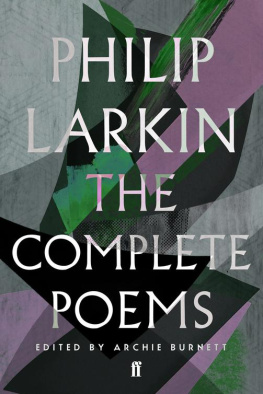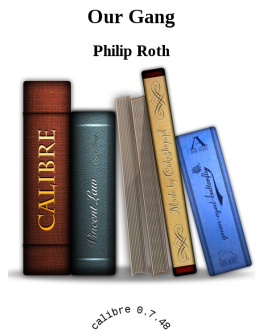Philip Sidney - A Defence Of Poesie And Poems
Here you can read online Philip Sidney - A Defence Of Poesie And Poems full text of the book (entire story) in english for free. Download pdf and epub, get meaning, cover and reviews about this ebook. year: 2005, publisher: eBooksLib, genre: Science. Description of the work, (preface) as well as reviews are available. Best literature library LitArk.com created for fans of good reading and offers a wide selection of genres:
Romance novel
Science fiction
Adventure
Detective
Science
History
Home and family
Prose
Art
Politics
Computer
Non-fiction
Religion
Business
Children
Humor
Choose a favorite category and find really read worthwhile books. Enjoy immersion in the world of imagination, feel the emotions of the characters or learn something new for yourself, make an fascinating discovery.
- Book:A Defence Of Poesie And Poems
- Author:
- Publisher:eBooksLib
- Genre:
- Year:2005
- Rating:3 / 5
- Favourites:Add to favourites
- Your mark:
- 60
- 1
- 2
- 3
- 4
- 5
A Defence Of Poesie And Poems: summary, description and annotation
We offer to read an annotation, description, summary or preface (depends on what the author of the book "A Defence Of Poesie And Poems" wrote himself). If you haven't found the necessary information about the book — write in the comments, we will try to find it.
A Defence Of Poesie And Poems — read online for free the complete book (whole text) full work
Below is the text of the book, divided by pages. System saving the place of the last page read, allows you to conveniently read the book "A Defence Of Poesie And Poems" online for free, without having to search again every time where you left off. Put a bookmark, and you can go to the page where you finished reading at any time.
Font size:
Interval:
Bookmark:
It was converted from clean and standard xhtml/xml files.
It uses metatags to identify content, and other data.
The available resources specific to each ebook format were used togive the reader a pleasant reading experience.
More details available at the ebookslib.com website.
Any suggestions that help us improve these editions arewelcome.
2011 ebookslib.com
eBook Version
eBooksLib.com
eBooksLib, eBooksLib.com are Registered trademarks owned byeBooksDistrib S.A.R.L (LLC)
___________________
November-2011
ISBN : 978-1-4121-6108-4

A Defence of Poesie
Poems


P hilip Sidney was born atPenshurst, in Kent, on the 29th of
November, 1554. His father, Sir Henry Sidney, had marriedMary,
eldest daughter of John Dudley, Duke of Northumberland, andPhilip
was the eldest of their family of three sons and fourdaughters.
Edmund Spenser and Walter Raleigh were of like age withPhilip
Sidney, differing only by about a year, and when Elizabethbecame
queen, on the 17th of November, 1558, they were children of fouror
five years old.
In the year 1560 Sir Henry Sidney was made Lord President ofWales,
representing the Queen in Wales and the four adjacent western
counties, as a Lord Deputy represented her in Ireland. Theofficial
residence of the Lord President was at Ludlow Castle, towhich
Philip Sidney went with his family when a child of six. In thesame
year his father was installed as a Knight of the Garter. Whenin
his tenth year Philip Sidney was sent from Ludlow toShrewsbury
Grammar School, where he studied for three or four years, andhad
among his schoolfellows Fulke Greville, afterwards Lord Brooke,who
remained until the end of Sidney's life one of his closestfriends.
When he himself was dying he directed that he should bedescribed
upon his tomb as "Fulke Greville, servant to Queen Elizabeth,
counsellor to King James, and friend to Sir Philip Sidney."Even
Dr. Thomas Thornton, Canon of Christ Church, Oxford, underwhom
Sidney was placed when he was entered to Christ Church in his
fourteenth year, at Midsummer, in 1568, had it afterwardsrecorded
on his tomb that he was "the tutor of Sir Philip Sidney."
Sidney was in his eighteenth year in May, 1572, when he leftthe
University to continue his training for the service of the state,by
travel on the Continent. Licensed to travel with horses forhimself
and three servants, Philip Sidney left London in the train ofthe
Earl of Lincoln, who was going out as ambassador to Charles IX.,in
Paris. He was in Paris on the 24th of August in that year,which
was the day of the Massacre of St. Bartholomew. He wassheltered
from the dangers of that day in the house of the EnglishAmbassador,
Sir Francis Walsingham, whose daughter Fanny Sidney marriedtwelve
years afterwards.
From Paris Sidney travelled on by way of Heidelberg toFrankfort,
where he lodged at a printer's, and found a warm friend inHubert
Languet, whose letters to him have been published. Sidney was
eighteen and Languet fifty-five, a French Huguenot, learnedand
zealous for the Protestant cause, who had been Professor ofCivil
Law in Padua, and who was acting as secret minister for theElector
of Saxony when he first knew Sidney, and saw in him a future
statesman whose character and genius would give him weight inthe
counsels of England, and make him a main hope of theProtestant
cause in Europe. Sidney travelled on with Hubert Languet from
Frankfort to Vienna, visited Hungary, then passed to Italy,making
for eight weeks Venice his head-quarters, and then giving sixweeks
to Padua. He returned through Germany to England, and was in
attendance it the Court of Queen Elizabeth in July, 1575.Next
month his father was sent to Ireland as Lord Deputy, andSidney
lived in London with his mother.
At this time the opposition of the Mayor and Corporation of theCity
of London to the acting of plays by servants of Sidney's uncle,the
Earl of Leicester, who had obtained a patent for them, obligedthe
actors to cease from hiring rooms or inn yards in the City,and
build themselves a house of their own a little way outside oneof
the City gates, and wholly outside the Lord Mayor'sjurisdiction.
Thus the first theatre came to be built in England in the year1576.
Shakespeare was then but twelve years old, and it was tenyears
later that he came to London.
In February, 1577, Philip Sidney, not yet twenty-three yearsold,
was sent on a formal embassy of congratulation to Rudolph II.upon
his becoming Emperor of Germany, but under the duties of theformal
embassy was the charge of watching for opportunities ofhelping
forward a Protestant League among the princes of Germany. Onhis
way home through the Netherlands he was to convey QueenElizabeth's
congratulations to William of Orange on the birth of hisfirst
child, and what impression he made upon that leader of men isshown
by a message William sent afterwards through Fulke Greville toQueen
Elizabeth. He said "that if he could judge, her Majesty had oneof
the ripest and greatest counsellors of State in Philip Sidneythat
then lived in Europe; to the trial of which he was pleased toleave
his own credit engaged until her Majesty was pleased to employthis
gentleman, either amongst her friends or enemies."
Sidney returned from his embassy in June, 1577. At the time ofhis
departure, in the preceding February, his sister Mary, thentwenty
years old, had become the third wife of Henry Herbert, Earlof
Pembroke, and her new home as Countess of Pembroke was in thegreat
house at Wilton, about three miles from Salisbury. She had a
measure of her brother's genius, and was of like noblestrain.
Spenser described her as
"The gentlest shepherdess that lives this day,
And most resembling, both in shape and spright,
Her brother dear."
Ben Jonson, long after her brother had passed from earth, wroteupon
her death the well-known epitaph:
"Underneath this sable herse
Lies the subject of all verse,
Sidney's sister, Pembroke's mother.
Death, ere thou hast slain another,
Learn'd, and fair, and good as she,
Time shall throw a dart at thee."
Sidney's sister became Pembroke's mother in 1580,while her brother Philip was staying with her at Wilton. He hadearly in the year written a long argument to the Queen against theproject of her marriage with the Duke of Anjou, which she thenfound it politic to seem to favour. She liked Sidney well, butresented, or appeared to resent, his intrusion of advice; he alsowas discontented with what seemed to be her policy, and he withdrewfrom Court for a time. That time of seclusion, after the end ofMarch, 1580, he spent with his sister at Wilton. They versifiedpsalms together; and he began to write for her amusement when shehad her baby first upon her hands, his romance of "Arcadia." It wasnever finished. Much was written at Wilton in the summer of 1580,the rest in 1581, written, as he said in a letter to her, "only foryou, only to you... for severer eyes it is not, being but atrifle, triflingly handled. Your dear self can best witness themanner, being done in loose sheets of paper, most of it in yourpresence, the rest by sheets sent unto you as fast as they weredone." He never meant that it should be published; indeed, whendying he asked that it should be destroyed; but it belonged to asister who prized the lightest word of his, and after his death itwas published in 1590 as "The Countess of Pembroke's Arcadia."
Font size:
Interval:
Bookmark:
Similar books «A Defence Of Poesie And Poems»
Look at similar books to A Defence Of Poesie And Poems. We have selected literature similar in name and meaning in the hope of providing readers with more options to find new, interesting, not yet read works.
Discussion, reviews of the book A Defence Of Poesie And Poems and just readers' own opinions. Leave your comments, write what you think about the work, its meaning or the main characters. Specify what exactly you liked and what you didn't like, and why you think so.











